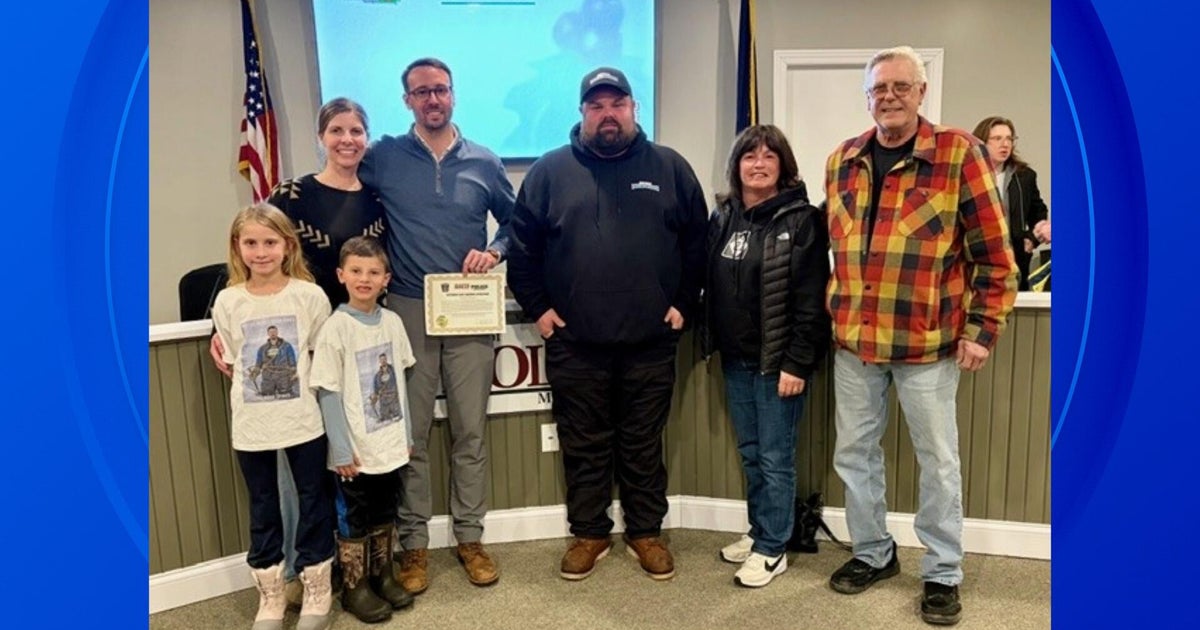Contractors Defend Their Actions In Building Collapse
PHILADELPHIA (AP) — Two contractors involved in a downtown Philadelphia building collapse hurled blame at each other Tuesday, through lawyers who broke their clients' weeklong silence about the disaster that killed six.
Contractor Griffin Campbell's lawyer called him "despondent" but "absolutely not responsible" for the deaths. The lawyer for demolition subcontractor Sean Benschop said he was "a scapegoat" for the city's pain.
And each said it wasn't his client's idea to use heavy equipment to knock down a four-story brick wall, which collapsed onto an adjacent thrift store last week, burying 19 people inside.
"They had to blame somebody, so they picked the lowest person on the totem pole," said Benschop's lawyer, Daine Grey. "My client followed the directions he was given, 100 percent."
Hours earlier, lawyer Kenneth Edelin told reporters that Campbell was onsite with the building owner when the collapse occurred, but had only authorized the excavator to be used to remove debris, not to knock down the wall, which investigators said it was used for.
If that was done, Campbell never saw it, Edelin said.
"He was on the site, (but) he was not right there where the wall was, he was not right there where the excavator was," Edelin said.
But even the presence of Campbell and the building owner at the relatively small job site shows "they were much more hands-on than everybody thought," said lawyer Andrew Duffy, who represents some of the survivors who have filed lawsuits.
Campbell had bid $122,000 for the demolition job, then hired Benschop to help him. Benschop, 42, has been charged with six counts of involuntary manslaughter by prosecutors who said he had marijuana and painkillers in his system and was impaired when the building fell June 5. He also had a cast on his right hand due to a prior injury.
Campbell has more than 20 years in the construction business and four years in demolition, and hired Benschop because of his "extensive experience" in demolition, Edelin said.
Both men have criminal records. But Grey said his client had moved beyond a 15-year-old drug conviction, and counted the city of Philadelphia among his demolition customers.
"When he was originally arrested, everybody looked at him as a high former drug dealer who had no business being on the construction site. That's not the case. My client was an experienced contractor," said Grey, who said Benschop was fit to work that day. "The fact that you have a substance in your system does not mean you're impaired."
The six victims include a pair of 24-year-old artist friends out shopping together and a woman working her first day there.
A grand jury has been convened to investigate whether anyone else should face criminal charges. Campbell talked to police the day of the collapse but may not cooperate with the grand jury if he becomes a target, Edelin said.
Benschop, meanwhile, is being held without bail pending a June 26 court hearing.
According to Duffy, photographs and physical evidence of the site disprove any claim that heavy equipment was only being used to remove debris. A YouTube video taken the Sunday before the collapse shows a machine with a claw being used to knock down the facade, and bricks raining down on the open sidewalk.
"Their whole claim is that they were removing this brick by brick, from the top down. That is defied ... by the physical evidence. In order to do that, you need scaffolding or a working platform," Duffy said. "There's no way that was being done."
Asked at the news conference how workers removed bricks 40 feet above ground without scaffolding, Edelin said "they were probably walking on the joists and the beams."
Bricks were falling on the thrift store roof in the weeks before the collapse, said survivor Felicia Hill, a shop worker.
According to Edelin, Campbell could not put a net or scaffolding on the store because the Salvation Army denied him access to the roof.
However, he said the job was nonetheless safe, and said inspectors from the city and the Occupational Safety and Health Administration, along with an engineer hired by the Salvation Army, checked on the demolition and issued no citations or stop work orders.
Neither lawyer disclosed how much Campbell was paying Benschop as a subcontractor.
"My client is a victim in this as well," Grey said. He is a working man, trying to go to work. He is now the public face of the hate of the city."
(© Copyright 2013 The Associated Press. All Rights Reserved. This material may not be published, broadcast, rewritten or redistributed.)







